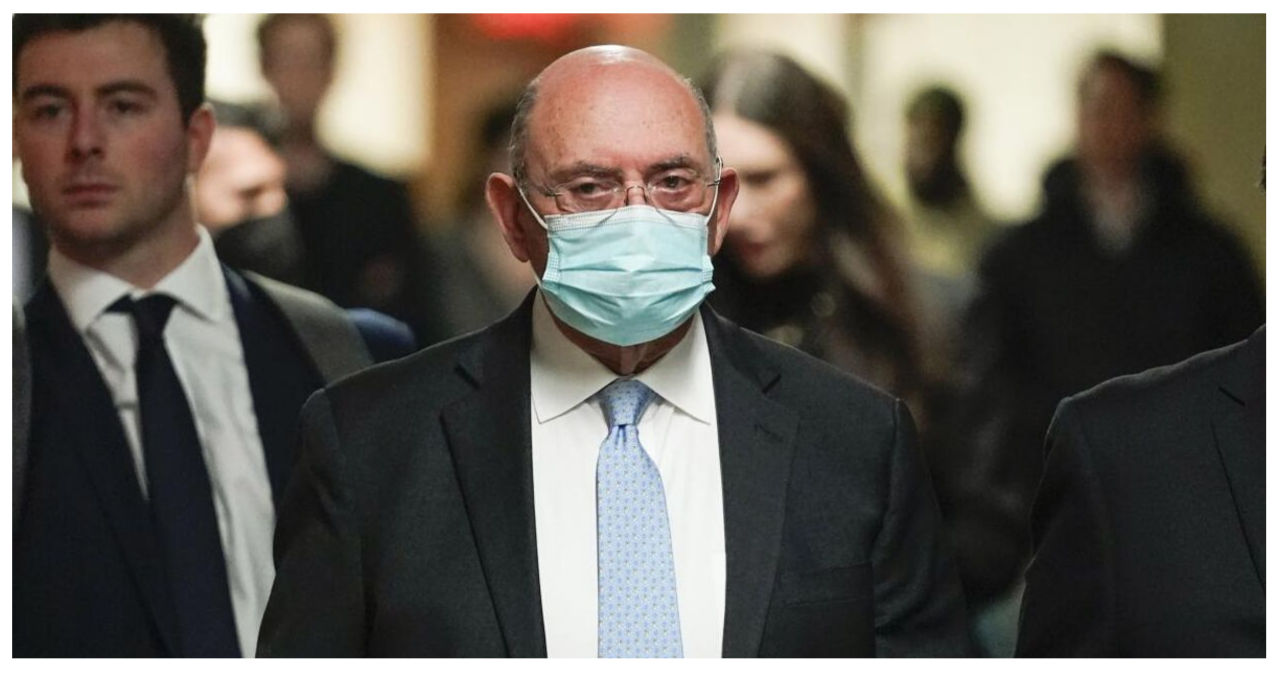Jamiesfeast – According to two sources familiar with the matter, prosecutors in Manhattan are considering the possibility of charging Donald Trump’s former corporate finance chief with perjury. This is in relation to the testimony he provided during the ex-president’s civil fraud trial in New York last October.
Allen Weisselberg, the former chief financial officer of the Trump Organization, provided testimony for two days during the trial. He answered questions regarding allegations that Trump had misrepresented his wealth on financial statements submitted to banks and insurance companies.
The prosecutors in the office of Manhattan District Attorney Alvin Bragg are looking into the specific details of Weisselberg’s testimony that have caught their attention.
According to anonymous sources familiar with the matter, the decision on whether or not to charge Weisselberg is not expected to be made soon. The office of District Attorney Bragg is currently engaged in preliminary discussions, both internally and with Weisselberg’s legal team. It is important to note that these discussions may not necessarily result in a criminal charge.
The New York Times was the first to report on the possibility of a perjury charge. We reached out to Weisselberg’s lawyers for comment but have not received a response. Bragg’s office declined to comment, and the same goes for New York Attorney General Letitia James’ office, which filed the civil lawsuit.
Weisselberg, who is currently on probation, spent 100 days in jail last year after being found guilty of evading taxes on $1.7 million in unreported income from the Trump Organization.
The 76-year-old faces a new charge that could potentially result in more jail time. This development poses a significant threat to his peaceful retirement in Florida. Moreover, it might also impact his unwavering loyalty to his former boss, who is currently covering his $2 million severance and legal expenses.
The investigation into Weisselberg’s testimony in the civil lawsuit is distinct from the criminal case initiated by Bragg against Trump last year. The latter case accuses Trump of falsifying company records to conceal hush money payments. The trial for this criminal case is set to commence in late March.
Bragg and James are both Democrats.
During his testimony in the civil case, Weisselberg attempted to downplay his role in the preparation of Trump’s financial statements. These statements are alleged to have exaggerated the former president’s wealth by as much as $3.6 billion, according to state lawyers. However, Weisselberg’s responses were often evasive, with him frequently resorting to phrases like “I don’t remember” or “I don’t recall.” In fact, transcripts reveal that he used these phrases more than 100 times while answering questions.
During the questioning on October 10, Weisselberg provided a resolute response when asked about the overvaluation of Trump’s penthouse at Trump Tower. The figures indicated that the penthouse was listed as three times its actual size, measuring 10,996 square feet (1,022 square meters).
During his testimony, Weisselberg mentioned that he didn’t place much importance on the size of the apartment, as it only represented a small portion of Trump’s overall wealth.
“I never even considered the apartment. It was insignificant, in my opinion,” Weisselberg remarked, using a Latin term that essentially means too trivial to bother about. “When you’re looking at a net worth of $6 billion, $5 billion, it wasn’t something that held much importance to me,” Weisselberg added.
During his testimony, Weisselberg revealed that he became aware of the discrepancy in the size of the Trump Tower penthouse when a reporter from Forbes magazine brought it to his attention in 2016. He admitted that he initially disputed the magazine’s findings, but he couldn’t recall if he instructed anyone to investigate the matter further.
Lawyer Louis Solomon questioned the defendant about their failure to verify who was right in the situation.
According to Weisselberg, he did not.
While still testifying, Forbes, whose reporters had previously discussed the difference in size with Weisselberg and made it public in 2017, published an article on its website implying that he had committed perjury.
The article’s headline proclaimed, “Trump’s Longtime CFO Deceived, Under Oath, About Trump Tower Penthouse.” It revealed that Weisselberg, Trump’s longtime CFO, had engaged in extensive conversations with the magazine in an attempt to persuade its writers that the penthouse held a far higher value than initially believed, as revealed by old emails and notes.
State lawyers claim that the penthouse gambit was just one of the many tactics employed to inflate Trump’s net worth. Although a judge has already deemed the financial statements fraudulent in September, there are still pending matters from the 2½-month trial that featured Weisselberg’s testimony.
In August 2022, Weisselberg admitted guilt to charges of neglecting tax payments on $1.7 million worth of corporate benefits. These perks included a Manhattan apartment, Mercedes-Benz vehicles for himself and his spouse, as well as his grandchildren’s educational expenses.
In April, he departed from Rikers Island, the infamous penitentiary in New York City, just days after Trump faced charges in his New York hush money criminal case.
As part of the plea agreement, Weisselberg was obligated to testify as a witness for the prosecution during the Trump Organization’s trial for aiding executives in tax evasion. He approached his testimony cautiously, presenting the details of his own participation in tax evasion while ensuring he did not implicate Trump. Weisselberg made it clear to the jury that his boss was unaware of the scheme.
According to a lawyer from the Trump Organization, Susan Necheles, she stated to the AP that Weisselberg’s testimony during the trial was incredibly beneficial to the defense and had a negative impact on the prosecution.
During last year’s grand jury investigation, which led to Trump’s indictment, Bragg’s office considered the option of charging Weisselberg with additional crimes related to his long tenure as the manager of the Trump Organization’s finances.
Prosecutors hinted at the possibility of bringing fresh charges against him regarding his role in obtaining surety bonds and property valuations for the Trump Organization, which is the main focus of James’ civil lawsuit.

